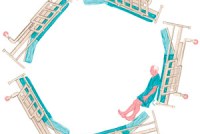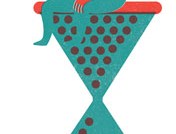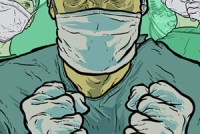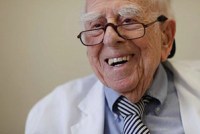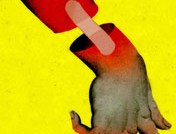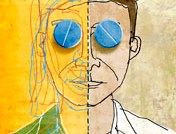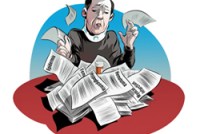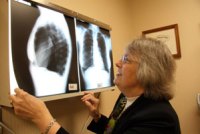Costliest 1 Percent Of Patients Account For 21 Percent Of U.S. Health Spending
Most of these patients have multiple chronic illnesses and all too often they wind up in emergency rooms because they have enormous difficulty navigating the increasingly fragmented, complicated and inflexible health-care system.
Some Doctors Questioning Whether Shorter Shifts For Interns Are Endangering Patients
The work day for doctors in their first year out of medical school was cut to 16 hours to reduce fatigue and medical errors. But recent studies suggest it may be making the situation worse.
Doctors’ Diagnostic Errors Are Often Not Mentioned But Can Take A Serious Toll
Diagnoses that are missed, incorrect or delayed are believed to affect 10 to 20 percent of cases, far exceeding drug errors and surgery on the wrong patient or body part, both of which have received considerably more attention.
Hospitals Crack Down On Tirades By Angry Doctors
For many years, hospitals were reluctant to address physicians who berated nurses, threw scalpels or demeaned co-workers. But increasingly such actions bring discipline.
Aging Doctors Face Greater Scrutiny
There are no mandatory retirement ages for doctors or formal evaluations of their skills, but some hospitals are now requiring older physicians to have periodic physical and cognitive exams.
Medical Centers Begin Training Programs For Specialists On Addictions
Few doctors have studied alcohol or drug abuse, but the problems can be at the root of more obvious ailments that keep patients cycling through the medical system.
College Students Bridge Chasm Between Medical Care And Poverty
The volunteers, part of a program called Health Leads, help low-income families connect with social service groups providing food, clothes, housing and other services so that children can overcome some of the obstacles contributing to health problems.
Off-Label Use Of Risky Antipsychotic Drugs Raises Concerns
The expensive medications, designed for people with schizophrenia or bipolar disorders, are being prescribed regularly for common problems such as anxiety and attention-deficit disorder and are being used on children and the elderly.
Colleges Face Challenges With Influx of Military Veterans
The demand for new services rises as veterans flock to schools around the country and need help for health, psychological and social issues that college officials generally haven’t dealt with.
Concern Is Growing That The Elderly Get Too Many Medical Tests
Critics say there is little evidence of benefit — and considerable risk — from common screening tests for colon, breast and prostate cancer, particularly in people older than 70, especially those with other serious health problems.
Effort To End Surgeries On Wrong Patient Or Body Part Falters
Experts thought simple steps, such as marking the surgical site and taking a timeout to confirm the details, would end the problem. But it turns out to be more complicated to change the culture of hospitals and doctors.
Hospitals Turning To Nocturnists
These physicians, who treat patients outside the emergency room, are seeking to reverse the “weekend effect,” or higher rates of death and complications.
Protecting Yourself During The Night And Weekend
Experts offer some tips for patients and their families to help prevent problems in the hospital.
Helping Patients Understand Their Medical Treatment
Consumers are increasingly expected to manage their complex regimens but that is especially challenging for those who don’t have the ability to comprehend health information.
Few Insurers Provide Coverage For Weight Loss Treatment
Millions of Americans battling excess fat find that their insurers refuse to pay for obesity treatments but instead cover its expensive consequences.
Cancer Patients’ Dilemma: Expensive Pills Vs. Invasive Chemo Treatment
Gaps in insurance policies make oral drugs too pricey for some cancer patients.
Parity Law Expands Mental Health Access
Many patients seeking mental health treatments, such as Denise Camp of Baltimore, have been forced to pick up a bigger share of the cost than they do with other medical bills. But a law that went into effect Jan. 1 prohibits such double standards.
‘Facility Fees’ Are Surprise Cost For Many Patients
Facility fees, charged to patients who get treatment in hospital-owned outpatient clinics, are used defray to hospital overhead, pay salaries and meet stringent standards, hospital officials say. Critics say the fees are a way to increase the cost of care when patients can least afford it.
Some Doctors Cut Deals With Struggling Patients
Doctors across the country are reducing their charges and offering payment plans to patients who have lost health insurance or income. This helps people stay well, but it also helps doctors maintain their practices at a time when many financially struggling Americans are deferring care. Patients who don’t pay their bills still run the risk of hearing from bill collectors.
Americans Ensnared By Medical Debt
The rising costs of care and a failing economy drive more Americans into medical debt.



